Description
ABSTRACT
The Supreme Court Decision in Ajibode v Gbadamosi on the Manner of Signing Legal Documents: Adding Salt to Injury or a Return to Status Quo
Dolapo Olutayo* and Oluwadamilare Adeyemi**
The article adopts the desk-based methodology in reviewing the Supreme Court of Nigeria (SCN) decision in Adekunle Ajibode & Ors. v Dauda Gbadamosi & Ors., wherein the Court held that an originating process or any court process signed other than by a legal practitioner within the meaning of sections 2(1) and 24 of the Legal Practitioners Act is void and of no effect whatsoever contrary to its earlier decision in Heritage Bank Ltd. v Bentworth Finance (Nig.) Ltd. where it held that failure to object to such a process at the earliest opportunity preferably, at the trial court, amounts to waiver and the court will treat same as a mere irregularity. The article raises the question; is the decision a return to the status quo in Nweke v Okafor or adding salt to injury by increasing the quandary of the conflicting decisions on the issue. It discusses the effect of this seemingly back and forth movement on Nigeria civil jurisprudence. The paper argues that giving the adoption of the Nigerian Bar Association (NBA) stamp and seal regime, which seeks to ensure that only qualified legal practitioners enrolled at the SCN engage in the practice of law, it is sheer technicality to persist in the position laid down in Nweke v Okafor but jettisoned in Heritage Bank Ltd. v Bentworth Finance (Nig.) Ltd. and reverted to in Adekunle Ajibode & Ors. v Dauda Gbadamosi & Ors. The paper makes vital recommendations, including adopting purposive interpretation geared towards furtherance of substantial justice in dealing with the quagmire of signing legal documents in the name of a law firm instead of an animate legal practitioner.
Keywords: Legal proceedings, Substantial justice, Supreme Court of Nigeria, Technicalities.
INTRODUCTION
One of the rights of a person called to the Nigerian Bar as a barrister and solicitor of the SCN is to prepare, frank and file legal documents in Courts for and on behalf of a client.1 Although the 1999 Constitution of the Federal Republic of Nigeria (1999 CFRN) recognises the right to counsel of one’s choice, which entitles anyone to represent themselves in court proceedings,2 only a legal practitioner whose name is found on the Roll kept by the Chief Registrar of the SCN, can act in a representative capacity as a legal practitioner.3 Where a legal practitioner acts in that capacity,
* LL.B (Hons) OOU, LL.M (Ibadan), BL. Lecturer, Department of Public and International Law, Lead City University, Ibadan Email: ol***********@ya***.com, Phone No: +2348058144955. At present a PhD Candidate at University of Ibadan.
** LL.B (Hons) OAU, LL.M (Ibadan), BL. Lecturer, Department of Private and Property Law, Adeleke University, Ede, Osun State. Email: ad*********************@gm***.com Phone No: +2348054932801.
- AO Adegoke, RE Badejogbin, ME Onoriede, Law in Practice: Professional Responsibilities and Lawyering Skills in Nigeria, (Jos University Press Ltd 2014) 48.
- See s 36 of the 1999 Constitution of the Federal Republic of Nigeria, Cap. C23 Laws of the Federation of Nigeria (LFN) 2004.
- Gani Fawehinmi v Nigerian Bar Association [1989] 2 NWLR (pt 105) 499.

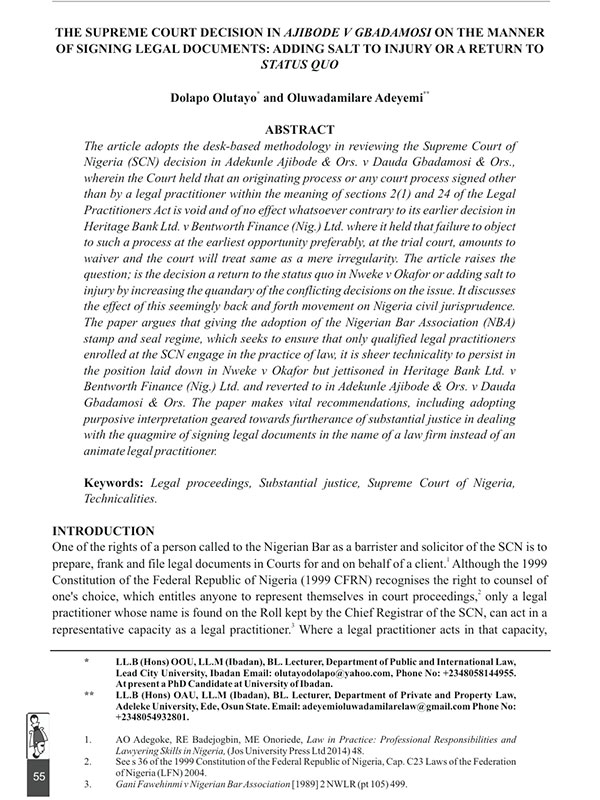
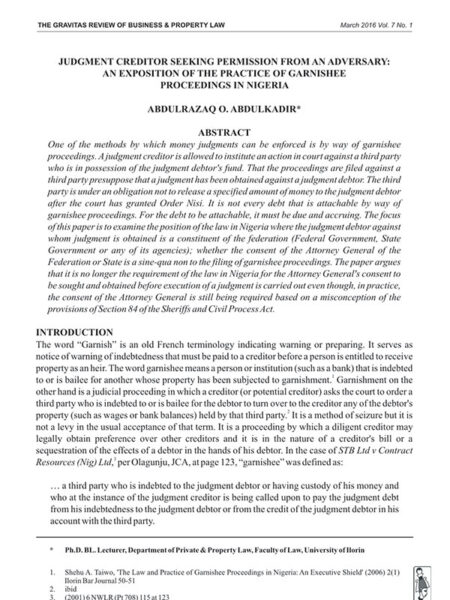
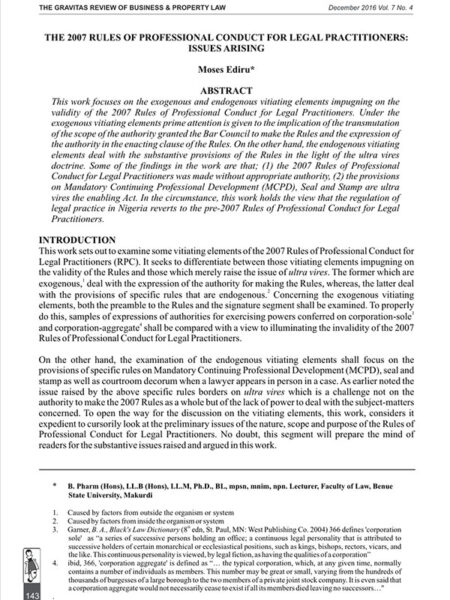
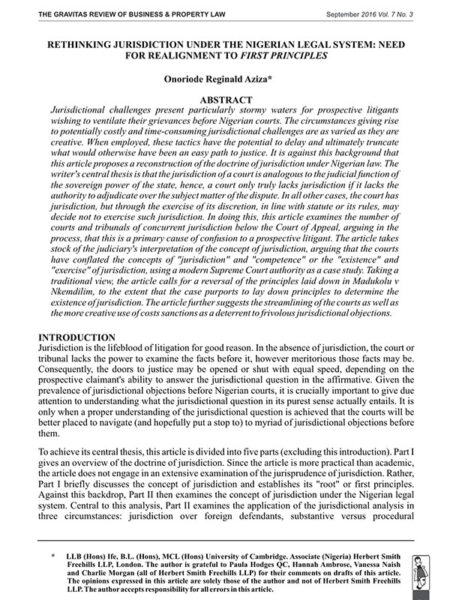
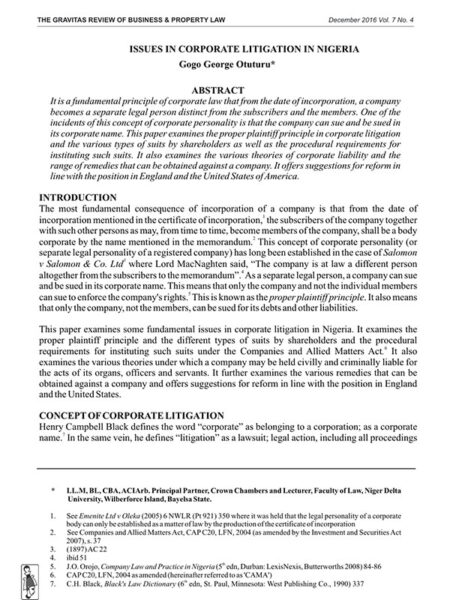


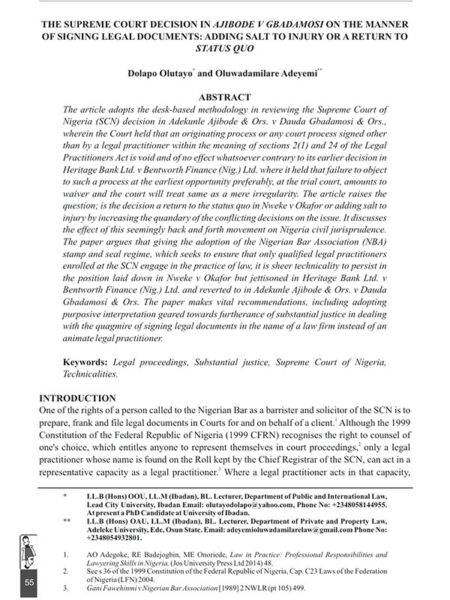
Reviews
There are no reviews yet.